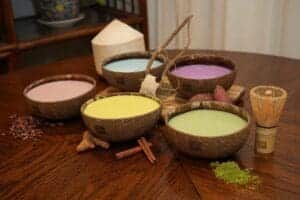There’s a lot of debate about the safety of drinking kava. Much of the debate comes from myths and misunderstandings about kava’s safety and effects. But when you look at the research and cultural history, kava is safe to drink.
There are topics in particular that have raised eyebrows about kava’s impact on its users. The first is the question of whether kava has liver damage, and the second is if kava is addictive.
Kava doesn’t damage your liver
Kava’s safety has been in question for a long time. Since the 1990’s, it was believed that kava causes liver damage. Fortunately, this myth was debunked by a detailed report from the World Health Organization. After extensive research, they determined that the kava root itself was not to blame for the liver damage cases that had been reported. In fact, kava has been consumed for centuries in Pacific Island cultures without any recorded incidents of liver problems.
The issue seems to have arisen from individuals consuming kava alongside other substances, such as alcohol, medications, or drugs. It’s also worth noting that during this time, Pfizer introduced Zoloft, a popular anti-anxiety medication, leading to speculation that the rumors about kava’s safety may have been fueled to push pharmaceutical alternatives. A German study from this period further complicated the issue, reporting elevated liver enzymes in participants taking kava extracts, which could indicate liver stress. However, later evidence suggested that these findings were more likely linked to underlying health conditions or the effects of combining kava with other substances.
It’s not addictive
One of the key aspects to kava’s safety is that kava is non-addictive. Even though some believe kava is addictive, this is largely based on a misunderstanding that dates back to the colonial era. When outsiders first encountered kava on the islands, they noticed its importance to the local culture but didn’t fully understand its use. This confusion was further compounded by its occasional use alongside substances like alcohol, leading to false assumptions about its addictive potential.
Addiction comes in two main forms: chemical and behavioral. Chemical addiction occurs when substances like drugs or alcohol change the brain’s chemistry, creating a physical dependence. Behavioral addiction, on the other hand, doesn’t involve chemical changes but arises from becoming attached to a particular habit or experience. Kava differs from substances like alcohol in that it doesn’t cause chemical changes in the brain, so users don’t develop a physical dependency.
In fact, because kava’s effects can resemble those of alcohol without the risk of physical addiction, it has been used as a tool in alcohol and drug recovery programs to help individuals manage withdrawal and recovery.
Kava’s side effects
Kava can sometimes cause side effects, often linked to the particular cultivar used. For example, wild cultivars like Tudei kava contain certain kavalactones that can trigger nausea, headaches, and diarrhea, with lasting effects for up to two days. Because of these potential reactions, Tudei kava isn’t generally recommended for casual or recreational consumption and is viewed as less favorable among kava enthusiasts. While these aren’t directly related to kava’s safety, they are important to consider when drinking kava.
Most side effects arise when someone consumes more kava than recommended. Taking too much of a heavier kava variety might lead to excessive drowsiness, while an overly high dose of a more energizing cultivar could result in upliftedness. As with any supplement or substance, knowing the appropriate dosage and how it impacts your body is crucial for avoiding unwanted effects.
Cautions
Like any substance we take, it’s important to understand all the details about kava’s safety and effects. While kava itself isn’t chemically addictive, some people may become addicted to how kava makes you feel if they use it too much. Like any substance or medication, it’s important to use kava responsibly and know the best dose and your own limits for the best experience.
Another thing to be aware of is what other things (medication or drugs) you are taking. It’s important to be aware of any contraindications; that is how kava might interact negatively with other things you take. We know that kava is safe on its own, but like many medications, it shouldn’t be taken with certain other substances.
The last thing we’ll mention is knowing the type of kava you are drinking. Kava has two main effects: light and uplifting on the mind, known as “heady” or calming, and muscle relaxing, known as “heavy.” Generally, heady kavas are drunk during the day when you are being social. Heavy kavas are best used at night before going to bed. They also have different strengths. So, like alcohol, it is possible to drink too much. However, it takes a lot more kava to impair you and won’t leave you totally out of it like alcohol can.
It’s important to consider all of these things when using kava and remember that anything comes with risks, even drinking too much coffee or eating too much chocolate.
Give it a try
A lot of the uncertainty around kava comes from a lack of understanding about how it actually works. This unfamiliarity can make it seem intimidating, especially when compared to substances like alcohol, which, while potentially more harmful, feels safer due to its common use. If you’re curious to learn more about kava’s safety, how it interacts with the brain, and why it’s considered safe and beneficial, we’ve covered it in detail in our article here.
If you try kava, you could find a new, natural way to relax—one that comes with a deep cultural history.
* Please note that the majority of kava research pertains to kava extracts, which often undergo significant processing and may contain additional ingredients and fillers that can influence their efficacy. It is crucial to consider this distinction when reading about kava studies. To draw an analogy, enjoying natural kava as a beverage can be likened to experiencing a freshly brewed cappuccino, whereas kava extracts are akin in functionality to a caffeine pill. Both forms have their unique benefits and can cater to different preferences and needs. While it’s helpful to understand research on kava extracts, please view it critically and remember that natural kava offers a uniquely holistic experience.
Tags: is kava safe, is kava tea safe to drink, kava safety, kava safe, is kava nectar safe, is kava kava safe







